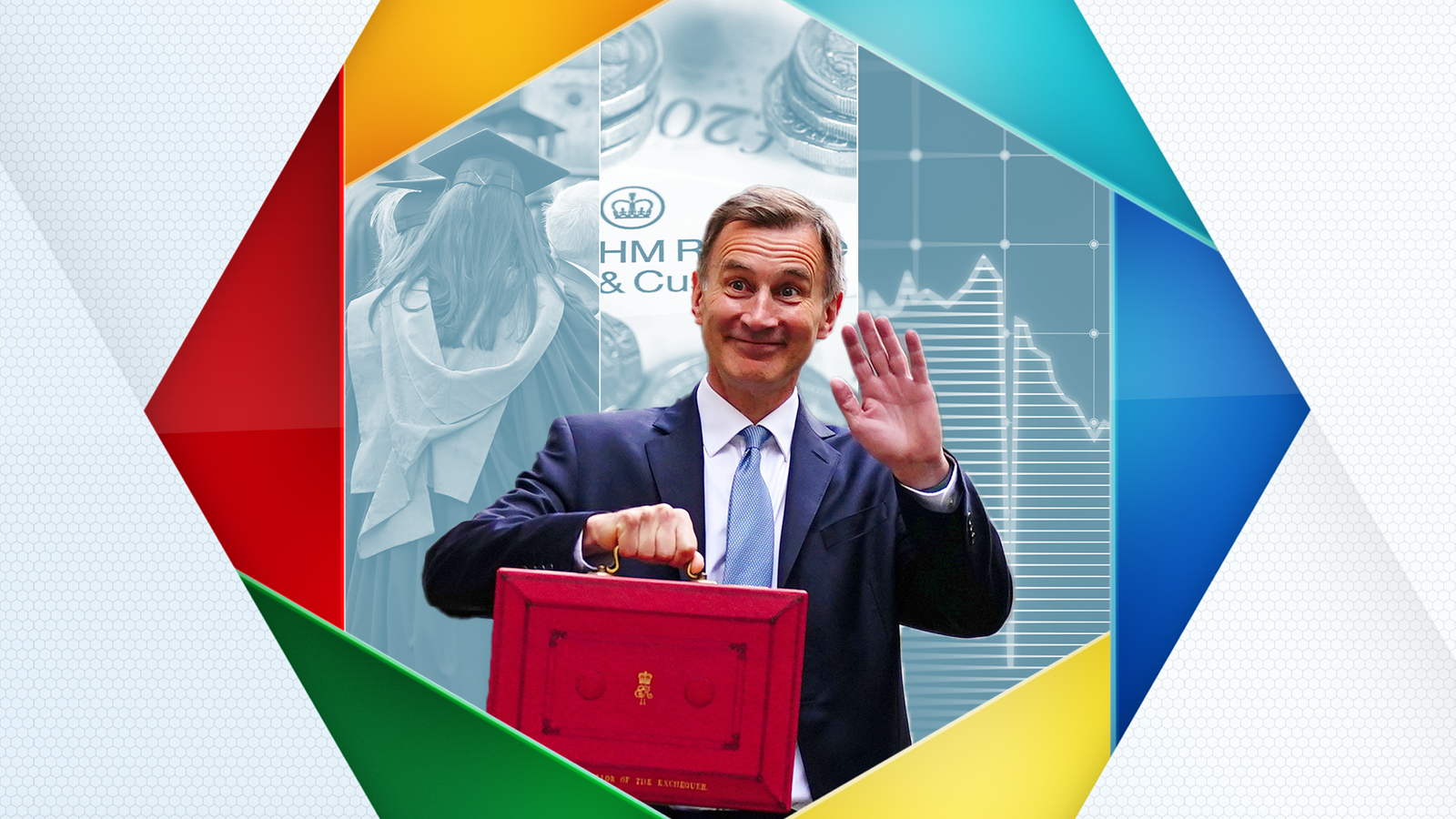Graduates in their 20s are earning less in real terms than they were before the 2008 financial crash, and are £1,200 worse off than they were at the start of the pandemic on average, despite recent cuts to national insurance.
Chancellor Jeremy Hunt has teased further national insurance cuts in his upcoming budget, following on from the recent decrease announced in his autumn statement.
It could be welcome news to some who have seen their pay packets squeezed over recent years as a result of the cost of living crisis, though economists have warned tax cuts would be unaffordable and would need to be reversed after an election.
People aged between 22 and 29 are earning less in real terms now than they were in 2002.
This is when factoring in inflation, including rising housing and food costs, over the period.
In 2023 prices, the median salary for a graduate in their 20s is £23,990 after paying taxes and student loan – compared with £25,200 in 2020.
Helen Miller, deputy director of the Institute for Fiscal Studies (IFS), said: “This comes in the context of an ongoing, multi-year freeze to personal tax thresholds.
“By 2027 (the last year of the planned freezes), an employee earning £35,000 will be paying about £440 a year more in direct tax overall as a result of all the changes to income tax and NICs since 2021.
“The government has announced significant tax rises. Regardless of what the chancellor announces in the budget, it is highly likely that this will be the largest tax-raising parliament on record.”
Changes to student loan plans
Student loan repayments are set at 9% of income above the salary threshold, which has been frozen at £27,295 since 2021/22.
Still, a recent graduate on an average income is currently paying around £13 a month towards their student loan, so is it really a big deal?
A big factor in the impact of student debt is not just how much people pay back per month, but how much they pay back over their working lives, and when they started university.
Those who went to university on ‘Plan 2’ higher university fees (£9,000 and above from 2012/13) will pay back almost £20,000 more than the previous ‘Plan 1’ cohort in their lifetime, according to estimates by the IFS.
Those who started in the 2023 academic year or later will be eligible for ‘Plan 5’ student loans, which have different repayment terms.
The threshold will increase in line with the Retail Prices Index (a measure of inflation) instead – meaning it will likely increase more slowly than under the previous policy and more graduates will start paying back their debt sooner.
Under the new system, student debt will only be written off after 40 years rather than 30, meaning many will make repayments for longer, potentially into their 60s.
This particularly affects low to middle earners, who are less likely to have paid off their debt after 30 years.
However, under this new system no borrower will repay more than they borrowed (in real RPI terms) – so the highest earners can expect to repay significantly less than if they had started university in 2022 due to the lower interest rate.
On the other hand, people on lower incomes will end up paying back more.
‘A thundercloud waiting to burst’
Dr Farhana Ghaffar, researcher at the University of East Anglia, has been looking at the impact of the post-2012 loan system on students and young people and interviewed graduates who had been through this system to see how it had affected them.
“The idea was generally that a university degree would set you up for life, so it would set you up for a particular kind of life where you’d be able to have a home, start a family,” she said.
But in exchange for this, students are taking on “enormous” amounts of debt, which can have an emotional impact.
“I think sort of five or six years on, they were constantly worried about the debt that was getting bigger and bigger. And obviously they couldn’t do anything about it.
“They’re not at a stage yet where I think we can kind of talk too much about the long-term impacts. But something that was really striking is it was a future worry.
“You know, ‘when I get a mortgage’ or ‘when I start a family’. Someone described it almost as being like a thundercloud, waiting to burst and they just didn’t know when it would happen.”
Anastasia is a Romanian student at the University of Dundee. Her tuition fees are free because she started studying in Scotland while the UK was part of the EU.
Watch Sky News’s coverage of the Budget live from 11am.
English students still have to pay to study in Scotland but students from other EU countries could study for free, as Scottish students do.
Anastasia isn’t sure if she would have gone to university at all if she had to pay fees.
She said: “I’d have to take a few months to think about it. And really, really think about it. I don’t think it’s a decision I could make just like that.
“If there was a way of knowing the payments would be acceptable and manageable – even though I probably won’t have a good job right after I graduate – maybe I would do that but very low chances.
But Anastasia knows that decision too could affect her future prospects, saying “[we are] in a world where everybody expects you to have a diploma for anything”.
“There are so many companies out there that will not give you the job even though you’re fully able to give them a wonderful performance, if you don’t have a diploma.”
The Data and Forensics team is a multi-skilled unit dedicated to providing transparent journalism from Sky News. We gather, analyse and visualise data to tell data-driven stories. We combine traditional reporting skills with advanced analysis of satellite images, social media and other open-source information. Through multimedia storytelling, we aim to better explain the world while also showing how our journalism is done.

